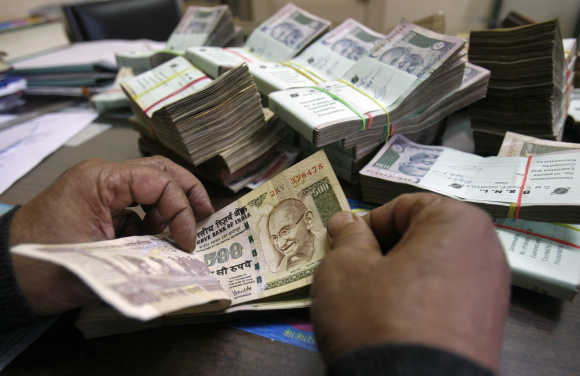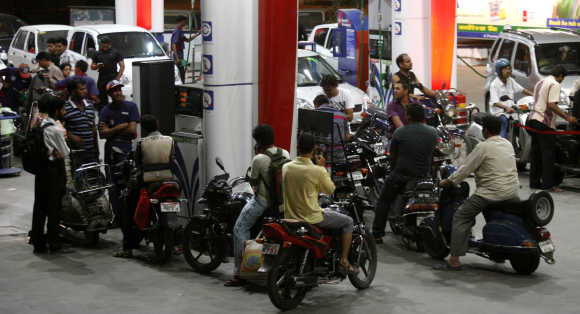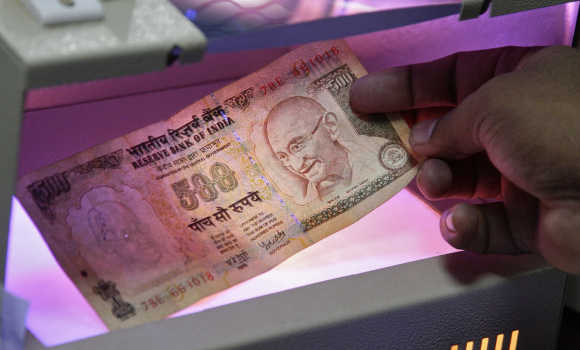 | « Back to article | Print this article |
Don't rush to invest in debt instruments
The rates of return offered on small savings schemes - those of the post office, Public Provident Fund and National Savings Certificate - have been increased by up to 50 basis points (bps) from April 1.
Beside good rates, the returns are tax-free. However, there is one problem with these instruments - liquidity.
PPF: Hemant Rustagi, chief executive officer of Wiseinvest Advisors, says the new rates will be good news if introduced, especially in the case of PPF.
Click NEXT to read more...
Don't rush to invest in debt instruments
"PPF gives returns of 8.65 per cent and is tax-free. Not many debt products give such returns. It is safe and the returns are assured. These (higher rates) will make them even more attractive," he says.
However, if the rates are raised, it does not warrant taking out money from equities and parking it in a PPF.
"Over the long term, equities will give you better returns than a PPF and are tax-free, as after a year of investing, there are no long-term capital gains levied," he said.
Click NEXT to read more...
Don't rush to invest in debt instruments
NSC and MIS: The case for an NSC or a post office monthly income scheme is weaker. Besides being illiquid, these instruments provide lesser post-tax returns. An increase of 50 bps does not make these instruments any more or less attractive.
An NSC matures in five years; you cannot withdraw mid-way, making the instrument illiquid. In December, the maturity period was reduced by a year and the interest rate raised by 0.4 per cent, to 8.6 per cent.
Second, as of now, MIS and NSC provide pre-tax returns of 8.2 per cent and 8.4 per cent, respectively.
Click NEXT to read more...
Don't rush to invest in debt instruments
However, there are banks that offer rates of between nine and 10 per cent for the same tenured fixed deposits. The State Bank of India, for example, offers its 10-year deposits at 9.25 per cent.
While NSC, MIS and bank Fds are not tax-free, post-tax returns of bank FDs are higher than those of MIS and NSC.
These are taxed in line with your applicable income slab. While MIS and NSC are typically aimed at senior citizens, there are better options, says Suresh Sadagopan, certified financial planner.
"They have a senior citizen savings scheme, which offers a higher rate of return at nine per cent and the limit is also higher at Rs 15 lakh instead of Rs 1 lakh for the NSC or MIS," he says.
Click NEXT to read more...
Don't rush to invest in debt instruments
He adds these schemes are used by senior citizens who lack a source of regular income, but there are options, such as IDBI Bank's monthly or quarterly income plans.
There are also bank FD especially for senior citizens, with higher interest rates. Another issue with MIS is that it pays eight per cent interest yearly (payable every month) and if you stay invested till maturity, you would get a five per cent bonus.
But, with the rise in interest rates, the bonus has been done away with.





